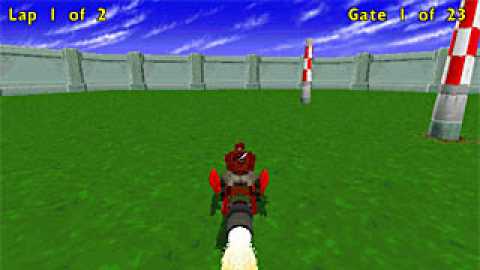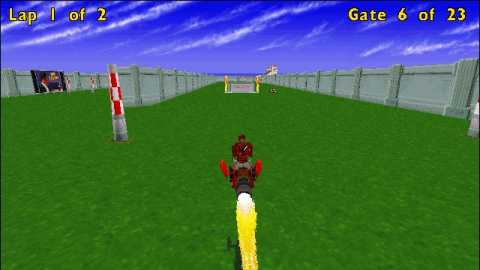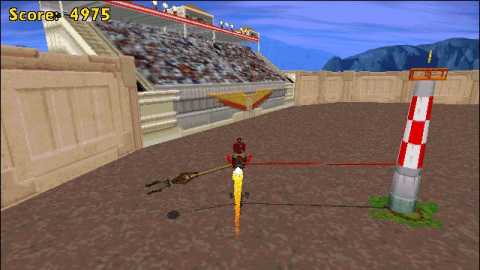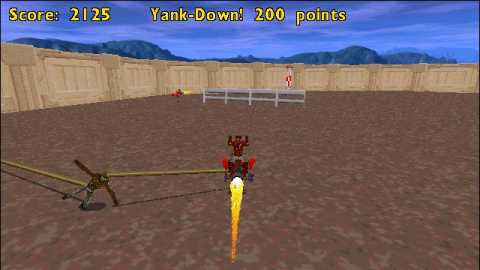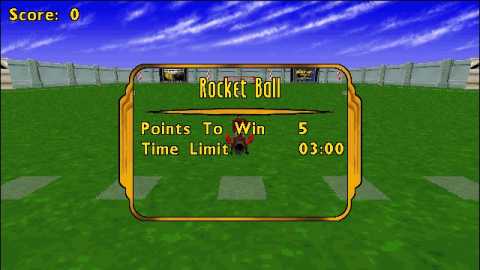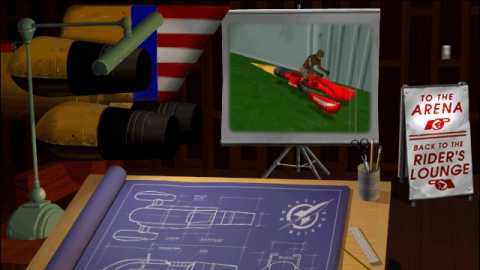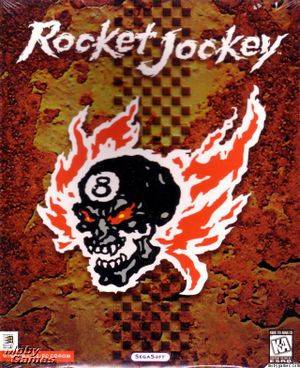Overview
Gameplay
First, the player chooses a rocket to ride upon. The rockets available out of the gate have negligible differences, but later game rockets have drastic stat increases. New rockets are not unlocked by finishing portions of the single player, but must be stolen from other riders. The player must yank a rival off his rocket, jump to the ground, and fly away on the rival's rocket before he can take it back. Then, they must finish the event with said rocket intact.All the rockets are rather unwieldy, allowed for only minimal maneuverability, so all three game modes feature pylons around the course which the player can latch on to by shooting harpoons out of the right or left side of the rocket. The player can control the length of the harpoon's grip on a given pylon or object, allowing for quick and sharp turns. Harpoons can also be connected: by latching onto two different things with both harpoons, the harpoons can be linked to effectively tie the objects together. This works for anything: two pylons, another rider and a pylon, a rider and a bomb, etc. Also, enhancements can be made to the chain of the harpoon. Scattered around the course, these upgrades will add barbed wire to the chain, increasing the damage it does to other riders, lengthen the chain, or allow harpoons to be stuck into the ground to turn.
Gameplay Modes:
- Rocket War: The player is placed in an enclosed arena and must then seek out the rival riders, yank them off their rockets with harpoons, and tie them to pylons. Before the time limit runs out, the player must either have all the riders chained to pylons, knocked out, or a combination of both. When a rival is chained to a pylon he is allowed to break free, so timing the takedowns of other riders becomes strategic. The player can also drag rivals behind him to damage opponents, and is rewarded for unique techniques (i.e., tying two riders together, tying rider to a bomb). These unique techniques all have special names, for example trying a rider to a bomb is called 'Ball and Chain'.
- Rocket Race: The player is presented with a number of gateways to pass through and must pass through them in order whilst racing others. Similar to 'Waverace', missing a checkpoint forces one to turn around and fly through it the correct way.
- Rocket Ball: Rocket Jockey's version of soccer. The player and rivals are placed on a soccer pitch style arena, with goals set up, and a ball in the center. The player must harpoon the ball and fling it into a goal to score a point. The player must have the most points when the time runs out to advance to the next stage.

 PC
PC